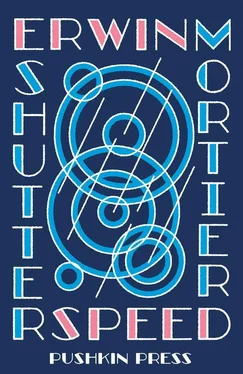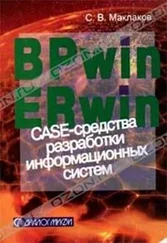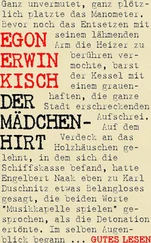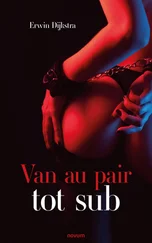‘Joris, my boy,’ she said, sounding unusually friendly, ‘we’re one bearer short for the canopy …’
I was baffled.
‘The canopy?’
‘Yes, the canopy of the heavens,’ she said, ‘for the procession. We are short of one bearer. Normally the eldest Dobbelaere boy does it, but he’s staying with relatives down south. You’re a bit young, I suppose, but on the other hand I think you’re quite tall for your age, and your dad, God rest his soul, was a good bearer in his time. The priest always used to say: with an Alderweireldt on the team the heavens will be all right. What do you say, Joris, do you think you could do it?’
I hunched my shoulders. Miss van Vooren’s wheedling tone put me on my guard. I had expected to be made to wait while she took a scrap of paper and made a list of what she needed from the shop. This invariably meant thinking long and hard over each item.
She would suddenly look up from her list and tell me rather sharply not to forget the tomato sauce. She always needed one tin of concentrated tomato purée, which was such a staple ingredient among all the various others — limp fillets of chicken breast, tiny portions of pale liver pâté or smidgins of low-fat cheese at which, Uncle said, even a mouse would turn up its nose — that I often simply forgot to add it to her shopping basket.
What on earth did she need it for? I pictured her sitting in the burble of the television in the evening, where, instead of having a biscuit or a slice of cake with her mug of weak tea, she would be spooning the tomato purée into her mouth straight from the tin, looking just as gleeful as I caught Aunt looking at breakfast sometimes, when she licked her finger after scraping it around a practically empty pear treacle jar.
‘It’s far too good, and too dear, to let it go to waste,’ she would say to excuse her weakness, but that was nothing compared to Miss van Vooren’s celebration of the joys of scrimping.
Miss van Vooren hoarded insufficiency. She bought minute quantities of food, regardless of type. She seemed determined to supply herself with a never-ending reservoir of disappointment, an unremitting hunger for more, and as a result of this subtle form of self-chastisement her tough, bony frame was visited by an incredible number of maladies. It was as though the different parts of her body were constantly engaged in getting their own back on the purity of her soul. But all this suffering only contributed to Miss van Vooren’s complacency and pride.
There were times when she was incapable of keeping her wealth of afflictions to herself. Then she would sail into the shop, one of her famous migraines ablaze like a swarm of fireflies around the flossy hair at her temples. Everyone knew what was up immediately.
At such times she usually wore very dark sunglasses, which magically transformed her into a wasp or a horsefly. Even before she had shut the shop door behind her she would be giving stiff little waves of the hand to say that she was in no mood for any palaver.
Uncle Werner knew exactly what to do. He put on a serious face like a mask tied with elastic round his ears, leaned over the counter and enquired: ‘Had a bad night then, Rosa?’
‘Oooh, dreadful,’ was the likely answer. If there had been a hailstorm overnight she would be sure to add: ‘It was just as if I could feel the stones pelting right through my forehead.’
I was expecting her to have had one of her bad nights, spent in hellish pain as per usual, but that morning she looked remarkably brisk. She repeated her question about me helping to carry the canopy, making it sound like a great privilege.
‘There is one condition, though,’ she added, crinkling her cheeks: ‘you have to be a virgin. I’m sure you know what I mean. But that won’t be a problem, will it now?’
‘I don’t know,’ I stammered. ‘I’ll ask at home.’
‘Right then, no problems on that score,’ she said with a secretive chuckle. ‘You’ll earn ten francs for your trouble, but I wouldn’t go wasting all that nice money at the fair if I were you.’
When I returned home Aunt asked me how I had got on.
‘She asked if I was a virgin,’ I replied.
Uncle Werner ducked beneath the counter to hide his laughter, but I was left with a tight feeling in my stomach for the rest of the day.
I was drawn to Miss van Vooren as to the cool blackness of a long-dead star whose gravity is impossible to resist. The light that so unmistakably beamed from her face in the photos of the Catholic Girls’ Circle, of which Aunt too had been a member before she married, had obviously been extinguished at some point in her life.
Shortly after stowing away her useless wedding dress for evermore, she must have resolved to spend the rest of her days casting shade instead, as a sort of antidote to that old sparkle which still made me blink when I stared into her dimness for too long.
As fussily as she specified the meagre purchases which drove every shopkeeper in Stuyvenberghe to despair, so meticulously did she weigh her innumerable invisible ailments on the scales of her words. She was at pains to describe with forensic accuracy the ache in her left hip, which was neither really acute nor dull, and not so much in her muscles as in the bone, although she was certain it wasn’t rheumatism … maybe it was just that she had a cold, or an infection, it could be a boil, since boils ran in the family.
I asked myself how Uncle Werner could bear to listen to her litanies without feeling terminally ill himself. Miss van Vooren had only to mention her varicose veins, something she was particularly prone to doing when the shop was crowded with customers, for me to feel a blue Nile delta slithering down my own shins towards my heels.
Her lamentations resonated in my limbs, charting every blind spot in my body and shunting me into an endless universe of pain from which I had previously been excluded. Until then I had known only the tropical heat-waves of influenza which, in the dead of winter or early spring, had made me lose myself in deliriously dense rain forests and released me from school.
Wrapped in blankets, I would recline on the sofa in the front room like an oriental deity in the half-light of his sanctuary, roused from his slumber only by the tinkle of the silver spoon in the glass of lemon squash on the tray Aunt brought me several times a day. I would take the glass from her hands like a cup of poison and bravely drink it down in one go, despite the bitterness that made the roots of my hair tingle.
Fever liquefied the days. I fancied I could smell ether or carbolic acid. I fancied I heard wheelchairs rolling squeakily down a hallway long ago, in some castle or other full of nymphs in winged head-dresses and wards with row upon row of dazzling white beds in which the sick lay wrapped in their sheets like caterpillars in silken cocoons.
I heard the whoosh of curtain rails and a voice, possibly Aunt’s, calling out: ‘Quick, Werner, quick, he’s going to be sick again. Hold the basin under his chin.’
Towards evening the wind died. Summer dusk draped itself over the village like a clammy sheet, and at half-past six the church bells set about coaxing the world back into its old routine.
The shop filled up after vespers, which was less than an hour before Aunt’s closing time. She called for me to come from the kitchen and lend a hand. Uncle Werner was out, taking his weekly drink at the café.
‘The lad’s been asked to help carry the canopy,’ she remarked while I climbed up the ladder to fetch her a packet of chicory powder from the shelf.
‘Really? Isn’t he rather young?’ said a customer, and someone else remarked on how time flew nowadays.
I handed Aunt the chicory powder and sat on the bottom rung of the ladder, waiting for her next summons.
Читать дальше












